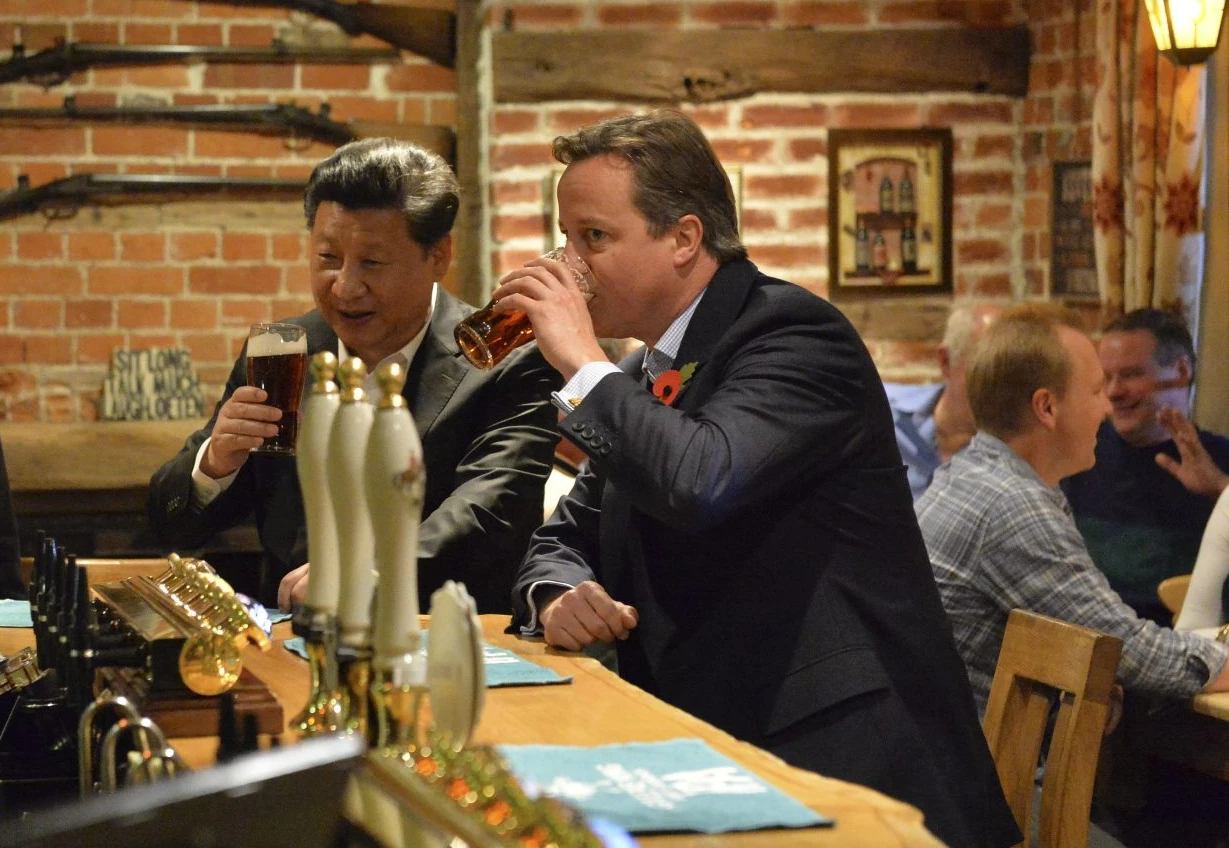
Partner Article
Booming aviation routes to China show that Cameron's 'golden decade' wasn't so misguided
In the halcyon days before last June’s EU referendum and the culture war that it unleashed, the comparatively unencumbered Conservative government rolled out the red carpet for a lavish state visit for Chinese President Xi Jinping back in 2015 as part of a sustained charm offensive.
At a time when the Government was less concerned with trade tariffs than which pint David Cameron should be papped sipping with Xi, the Tories faced criticism from some quarters for their perceived toadying and boot-licking of a world power with a checkered human rights record.
Amid hopeful rhetoric of a ‘golden era’ of UK-Sino cooperation and investment, Cameron and Osborne’s vision of a flood of Chinese investment into key industries, including the Hinkley Point C nuclear power station, seemingly hit the brakes following their dramatic fall from power.
However, figures released by both Gatwick and Heathrow last week have suggested that the former PM’s hopes for a ‘golden decade’ were perhaps not so misguided after all, with both cargo and passengers flooding between the two nations.
At Heathrow trade routes to East Asia rose 14% in July to the likes of China and Hong Kong (as well as Southeast Asian city state Singapore).
For Gatwick, the airport was celebrating the first year of long-haul routes to regional Chinese centres Tianjin and Chongqing which has helped to fuel a 6.1% boost in the number of passengers heading to China from its departure lounges.
Stewart Wingate, Gatwick chief executive, has targeted more routes and connections to China as a ‘key’ part of its expansion plans and with recent figures from ForwardKeys showing a 29% surge in Chinese tourists visiting the UK this summer it’s hard not to see why.
The figures themselves hint at the wider trend of Chinese investment that has continued unabated despite Theresa May’s more cautiously protectionist approach, an outlook defined by frictions over China’s 33% investment in the £20bn Hinkley Point C project.
In the capital, Chinese firm ABP is currently developing a massive new £1.7bn business centre at the Royal Albert Docks that will act as a gateway between London and Asia.
Meanwhile, the decline in the pound has also reignited Far Eastern interest in London’s property market with a string of high-profile acquisitions in recent months highlighting both the value for overseas buyers at the top-end of the market and the increasing global clout of China’s biggest firms.
The flood of renminbi into the UK is only going to grow over the coming years with the swelling Chinese middle class providing a boon to the UK’s tourism industry and growing Chinese businesses, including tech firms like Tencent and Mobike, increasingly flexing their muscles outside of their home market.
David Cameron certainly made a number of bad calls in his reign as PM, but his recognition of the increasing centrality of China’s investment capital was definitely not one of them.
Looking to promote your product/service to SME businesses in your region? Find out how Bdaily can help →
Enjoy the read? Get Bdaily delivered.
Sign up to receive our popular morning London email for free.








 Ready to scale? Buy-and-build offers opportunity
Ready to scale? Buy-and-build offers opportunity
 When will our regional economy grow?
When will our regional economy grow?
 Creating a thriving North East construction sector
Creating a thriving North East construction sector
 Why investors are still backing the North East
Why investors are still backing the North East
 Time to stop risking Britain’s family businesses
Time to stop risking Britain’s family businesses
 A year of growth, collaboration and impact
A year of growth, collaboration and impact
 2000 reasons for North East business positivity
2000 reasons for North East business positivity
 How to make your growth strategy deliver in 2026
How to make your growth strategy deliver in 2026
 Powering a new wave of regional screen indies
Powering a new wave of regional screen indies
 A new year and a new outlook for property scene
A new year and a new outlook for property scene
 Zero per cent - but maximum brand exposure
Zero per cent - but maximum brand exposure
 We don’t talk about money stress enough
We don’t talk about money stress enough